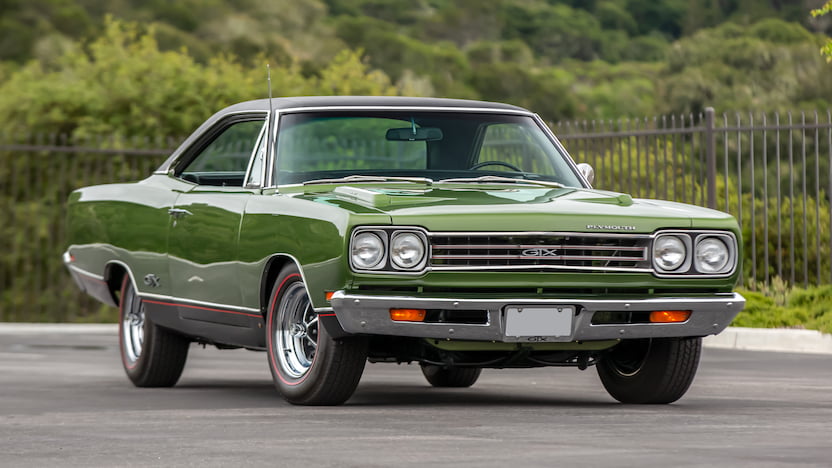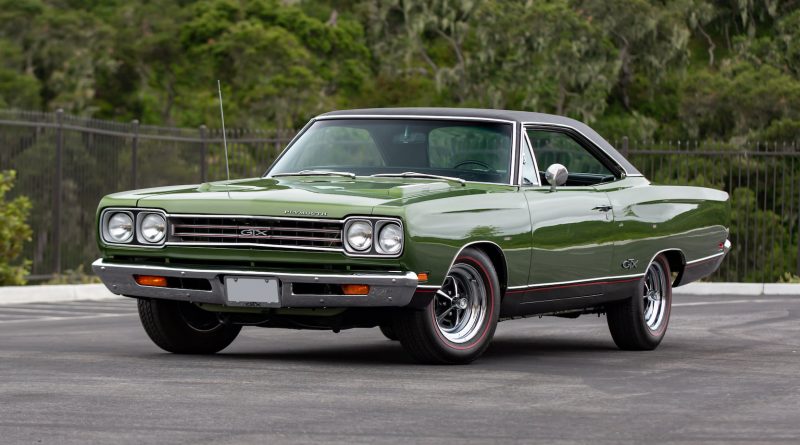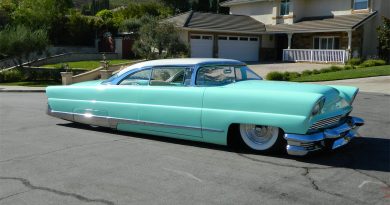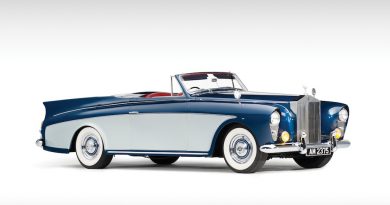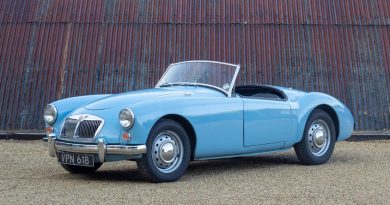1969 Plymouth GTX
The Plymouth GTX is an automobile introduced as the Belvedere GTX in 1967 by the Plymouth division. It was positioned as a mid-sized upscale-trimmed performance muscle car through the 1971 model year.
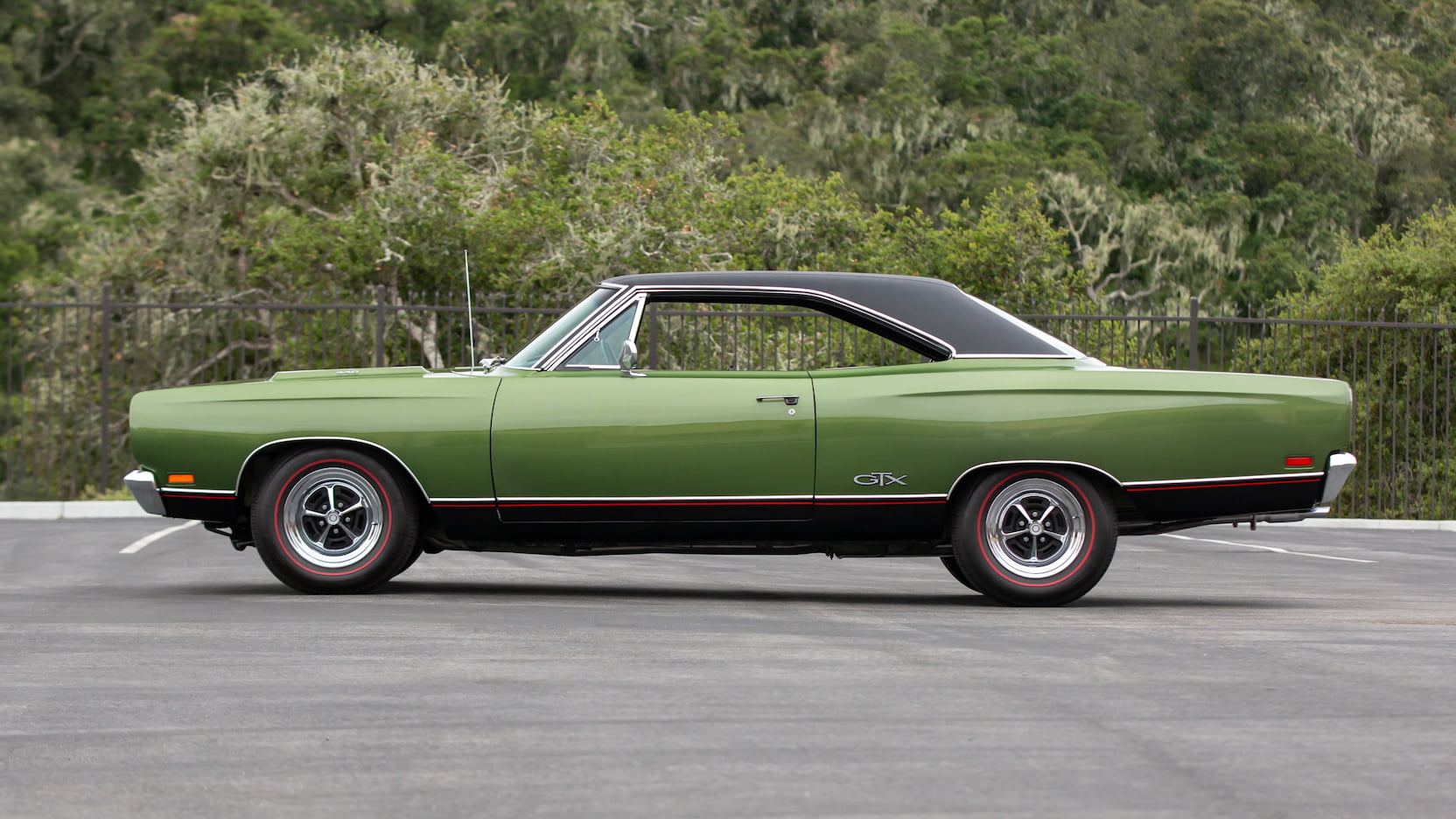
The introduction of a lower-price line – Plymouth – to compete head-on with Ford and Chevrolet, helped Chrysler Corporation weather the Depression years. Launched in 1928, the four-cylinder Plymouth, although not a revolutionary design, nevertheless incorporated hydraulic braking, full-pressure lubrication and aluminium pistons, a specification its rivals would not match for a decade. The car was an instant success and by 1933 Plymouth was the US auto industry’s third biggest seller, just behind Ford. Plymouth sales enjoyed somewhat of a roller-coaster ride in the post-war era, plunging in the early 1960s only to revive on the back of a range of new sporting models and numerous high-profile racetrack successes.
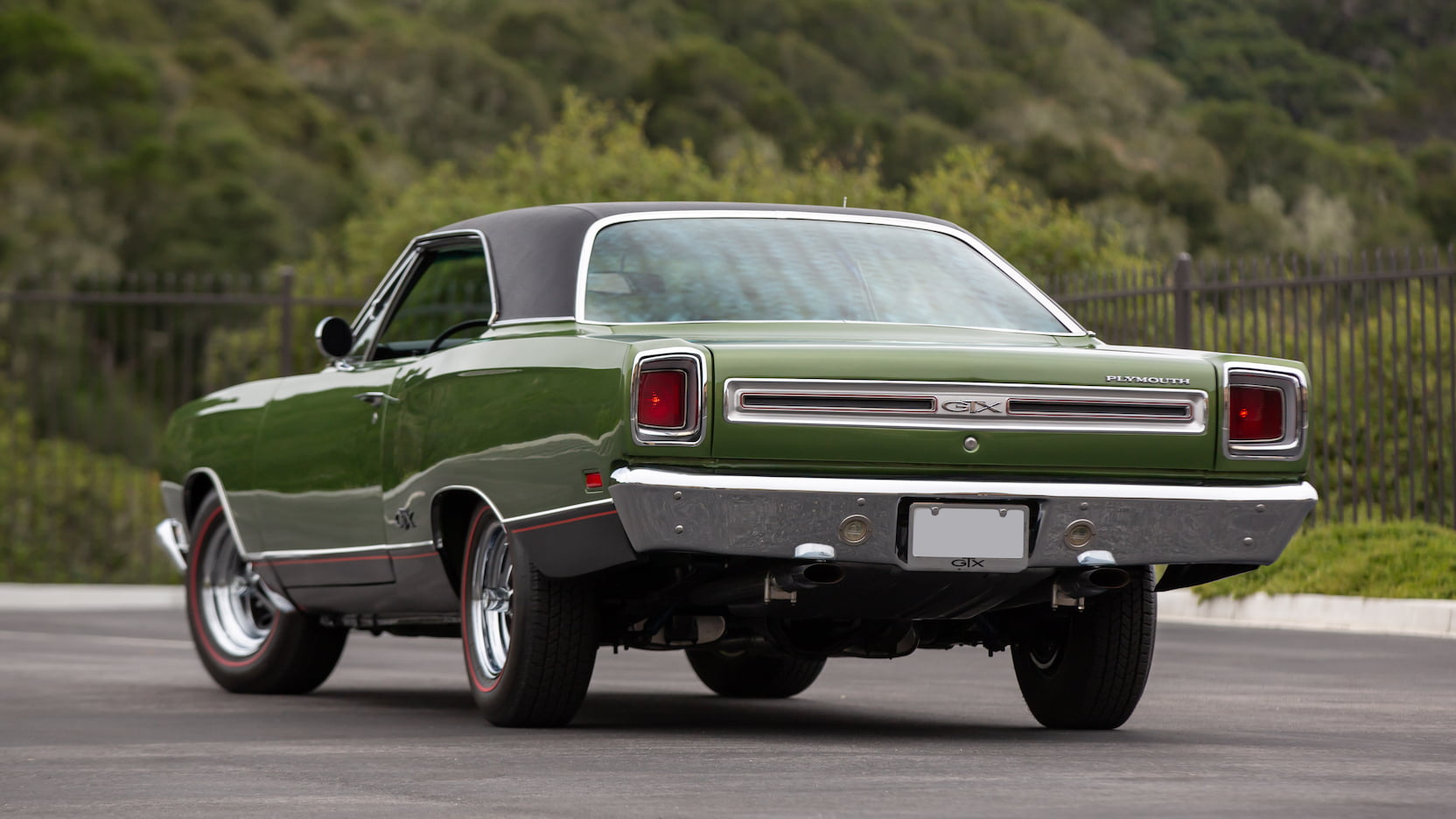 The Plymouth GTX became a little curvier in 1968, and its position as a luxury hot rod was strengthened with Plymouth’s introduction of the more affordable and basic Road Runner. Engine choices remained unchanged from the previous year and continued that way through 1969. Drag test showed that the 440-cid Super Commando V-8 led the 426-cid street Hemi for the first eighth of a mile, until the Hemi came “on the cam” and won by about two car lengths. With a 4.10 rear axle a 440 motor, the GTX could turn 0-60 mph in 5.8 seconds and a quarter-mile in 13.7 seconds at 102.8 mph. Exterior changes in 1969 were minimal with just a new grille and taillights.
The Plymouth GTX became a little curvier in 1968, and its position as a luxury hot rod was strengthened with Plymouth’s introduction of the more affordable and basic Road Runner. Engine choices remained unchanged from the previous year and continued that way through 1969. Drag test showed that the 440-cid Super Commando V-8 led the 426-cid street Hemi for the first eighth of a mile, until the Hemi came “on the cam” and won by about two car lengths. With a 4.10 rear axle a 440 motor, the GTX could turn 0-60 mph in 5.8 seconds and a quarter-mile in 13.7 seconds at 102.8 mph. Exterior changes in 1969 were minimal with just a new grille and taillights.

Inside, the GTX offered the top trim of any car based on the Belvedere. This included simulated wood-grain on the door and instrument panels and all-vinyl bucket seats.
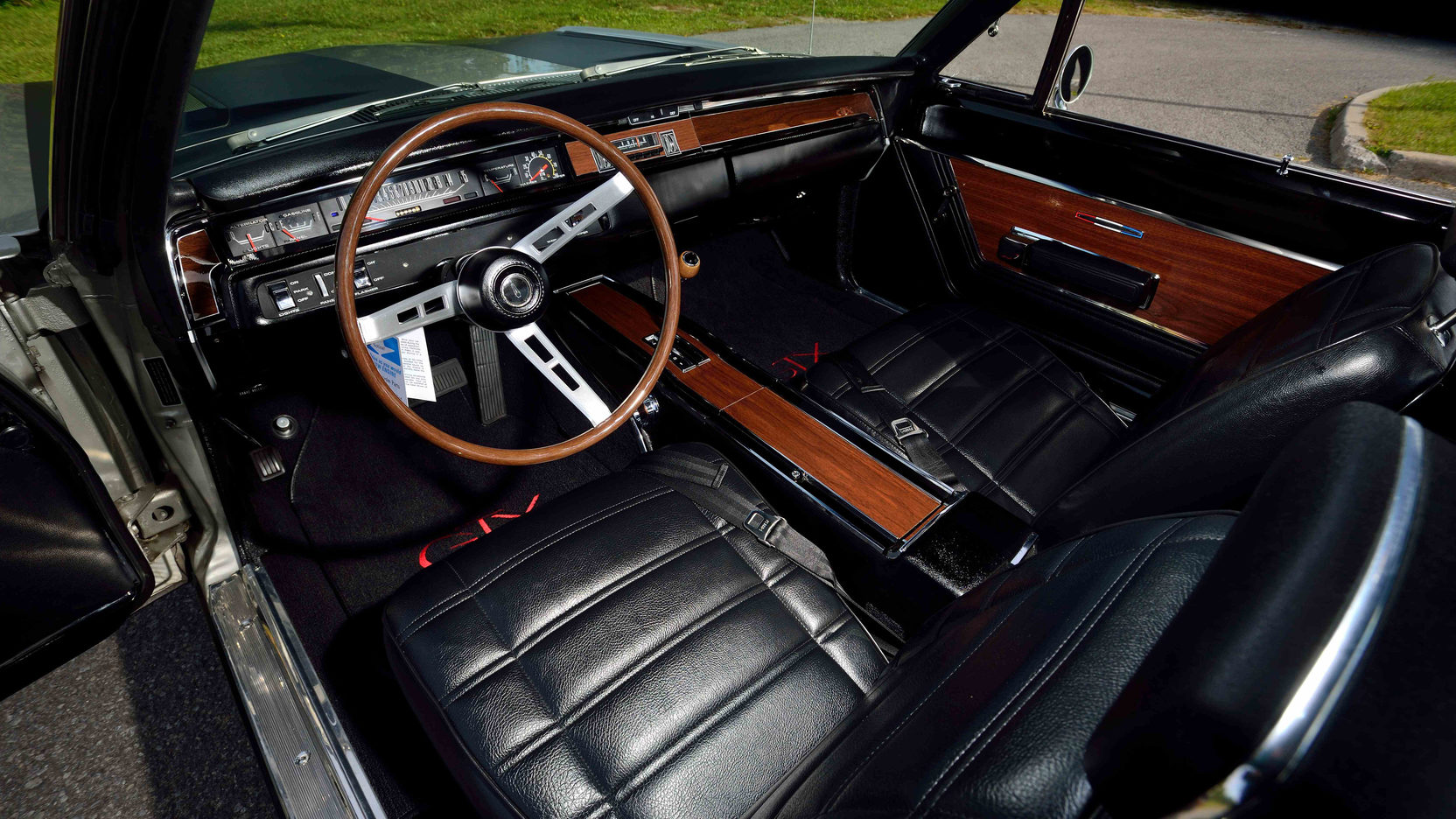
The first thing that popped into our heads when we laid eyes on this sinister Plymouth was: “Some cars just drip presence.” Now, that’s all well and good unless ‘initial draw’ doesn’t equal ‘ultimate impression’. For a car to be truly desirable, that presence must be founded on quality mechanicals.
